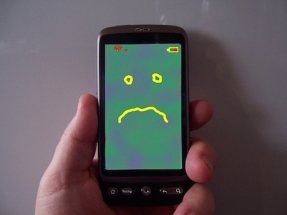
The leading cause of accidental death among “working-age” adults is poisoning, most often from prescription drug overdose. Falls cause the most fatal injuries in adults older than 65. Car accidents cause the most injury-related deaths in younger people.
It seems as though every age and stage has unique risks when it comes to injury-related death. But, one of the causes of these fatal injuries is becoming more prevalent across the board, from teenagers to adults: cell phones.
Distractions caused by mobile devices contribute notably to crashes that kill people. Most people have heard the adage “don’t text and drive” but it turns out that many of these accidents aren’t caused solely by texting (though it is the most common culprit).
In fact, according to a news report from Health, research has shown that about 5% of crashes involve texting while 21% involve talking on a handheld or hands-free device. It is often assumed — and past research has revealed — that teenage hands hold the cellphone behind the wheel, but more recent information shows that the adults scolding them for it may not be much better.
The Car Connection put out an article detailing a recent online survey asking 2,045 adults about their driving habits, and what they consider safe and unsafe. The results may surprise you.
An immense majority of the adults (94%) think that sending texts while driving is “dangerous or very dangerous.” An almost equally large percentage believes it is a risk to even read text messages behind the wheel. These answers are a good sign, right? Well, it’s a sign adults know the risks.
In the same survey, 45% of those adults admitted to reading text messages on the road while driving. Thirty-seven percent of the adults said they type and send text messages behind the wheel. Even more surprising, one-third of those surveyed say they have looked up information or surfed the web while driving.
As stated in the article, “we tend to focus our energies on warning teens about the dangers of distracted driving, rather than their parents. We figure mom and dad know better.” Unfortunately, the survey shows that we do know better — but we’re doing it anyway.
The fatal accidents caused by distracted driving from cell phone use do not only encompass texting and driving: talking on the phone while driving is shown to be dangerously distracting as well.
Think of how many times you’ve called someone while driving; it’s common to call your spouse or the kids on the way home from work, or even get on a conference call while stuck in morning rush-hour traffic. Drivers often talk on the phone, and it is common thought that talking while driving is less distracting.
The bottom line is that if a driver is doing anything other than focusing on the road, they are at greater risk for an accident. In the survey, 69% percent of adults agree that talking on a hand-held cell phone behind the wheel is distracting.
A smaller percentage thought that chatting on a hands-free device was as dangerous. But, some studies and research shows that conversation is the distraction, not necessarily the device.
Despite numbers revealing the risk, a large percentage of adults (74%) talk on the phone while driving, and 21% do so frequently.
Parents who drive with their children in the car have even admitted to using their cell behind the wheel.An interview of 570 parents, with children between the age of 1 and 12, revealed that 90% drive distracted.
Two-thirds of the parents said they talked on the phone while driving with their child in the back seat, and 15% admitted to texting. This behavior puts everyone in the car at risk for a fatal accident; it also makes an
impression on a child who will, in the future, be responsible for making decisions about cell phone use behind the wheel.
It is true that more young people are dying in car accidents caused distracted driving than adults. According to information from the National Highway Traffic Safety Administration, driver error — such as texting— encompasses 95% of auto crashes among 15 to 18 year old drivers.
While researchers state “these issues are more related to driver inexperience than driving drunk or drugged,” it is becoming clear that even experienced drivers allow themselves to get distracted by cell phones.
Because distracted driving is causing more and more accidents on the road, law enforcement is cracking down. Some states have laws against talking on the phone, and texting while driving is most often met with a ticket if an officer spots a driver with phone in hand. Distracted driving isn’t only dangerous; it is reprehensible by law.
If a driver using a cell phone behind the wheel causes an accident that injures other people, that person can be held liable. Injuries caused by distracted driver can be life threatening and life altering; medical bills can quickly become overwhelming and the injured person’s ability to work to earn money could be affected.
All this information tells us that something must change when it comes to the relationship between driving and cell phones. Young or old, experienced or inexperienced, drivers shouldn’t make a habit of using a mobile device behind the wheel.
On the crowded city streets of New York, countless accidents take place as a result of distracted driving. If you read this post, share it with friends and family members to warn them of just how dangerous mixing cell phones with driving can be.
Photo Credit:Ron Bennetts viaCompfightcc
